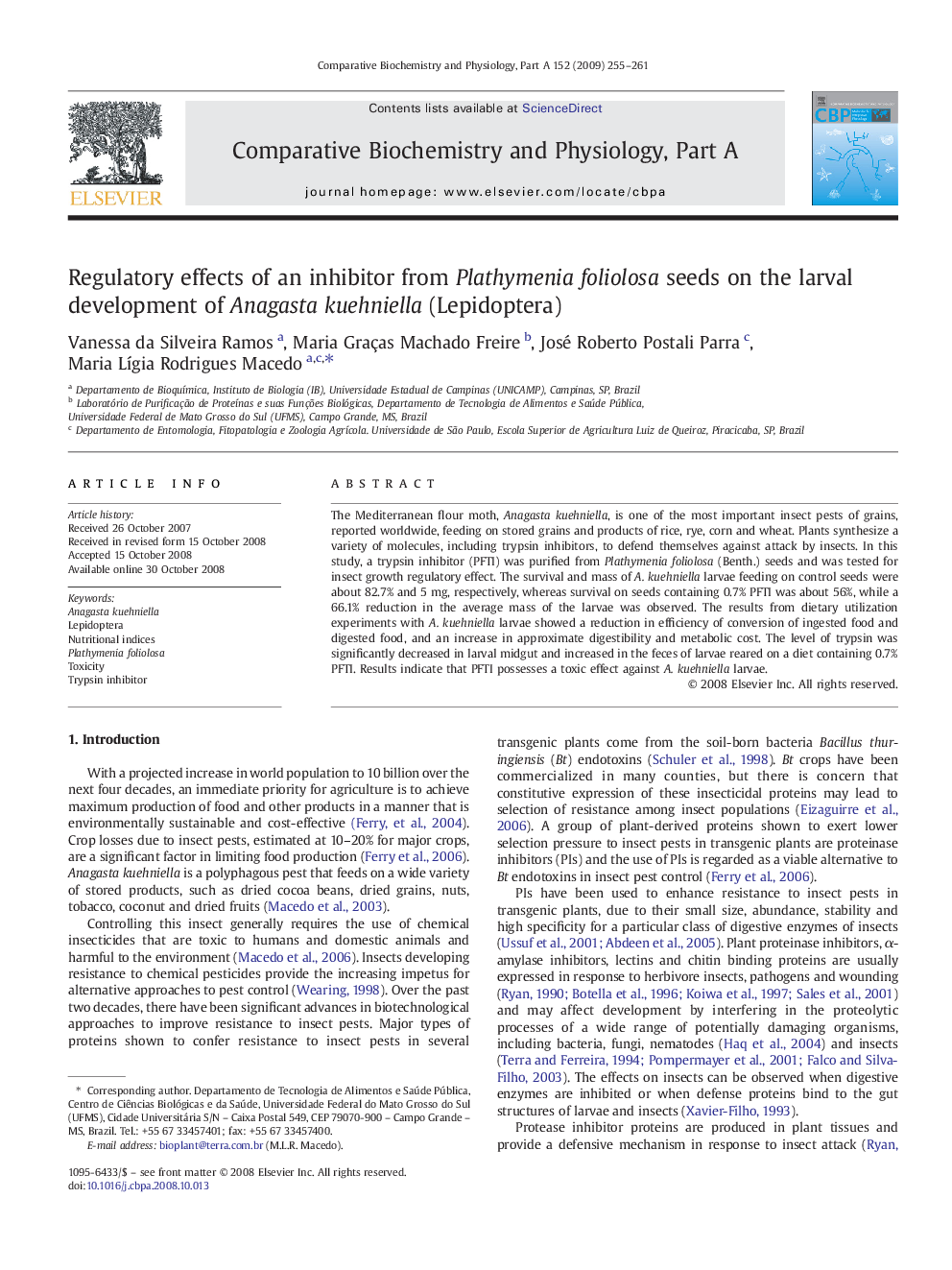| Article ID | Journal | Published Year | Pages | File Type |
|---|---|---|---|---|
| 1973669 | Comparative Biochemistry and Physiology Part A: Molecular & Integrative Physiology | 2009 | 7 Pages |
The Mediterranean flour moth, Anagasta kuehniella, is one of the most important insect pests of grains, reported worldwide, feeding on stored grains and products of rice, rye, corn and wheat. Plants synthesize a variety of molecules, including trypsin inhibitors, to defend themselves against attack by insects. In this study, a trypsin inhibitor (PFTI) was purified from Plathymenia foliolosa (Benth.) seeds and was tested for insect growth regulatory effect. The survival and mass of A. kuehniella larvae feeding on control seeds were about 82.7% and 5 mg, respectively, whereas survival on seeds containing 0.7% PFTI was about 56%, while a 66.1% reduction in the average mass of the larvae was observed. The results from dietary utilization experiments with A. kuehniella larvae showed a reduction in efficiency of conversion of ingested food and digested food, and an increase in approximate digestibility and metabolic cost. The level of trypsin was significantly decreased in larval midgut and increased in the feces of larvae reared on a diet containing 0.7% PFTI. Results indicate that PFTI possesses a toxic effect against A. kuehniella larvae.
